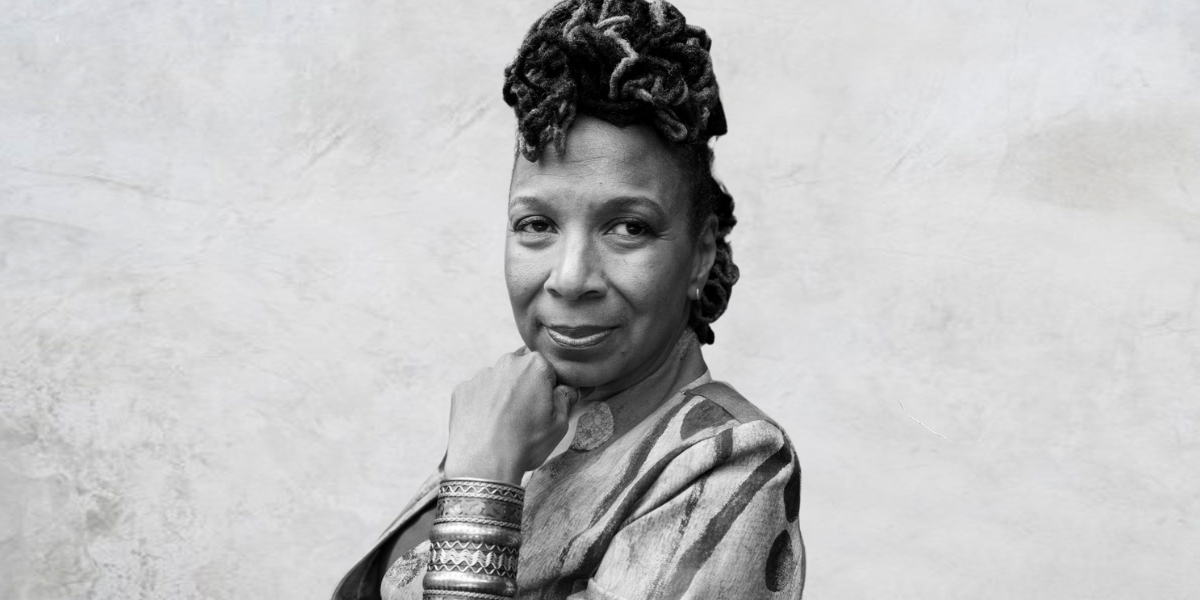
Kimberlé Crenshaw (1959-present) is one of the most influential feminist philosophers of our time. She is known for her advocacy for American civil rights, being a leading scholar of critical race theory, and pioneering what we now know as the third wave of feminism.
Crenshaw was born in Ohio, US in 1959. As a child, she grew up through the US civil rights and second wave feminist movements, both which occured throughout the 1960s and 70s. This time of revolutionary movements towards equality influenced how Crenshaw was raised.
“My mom was a little bit more radical and confrontational and my father was a little bit more Martin Luther King and ‘find common ground’. Which is probably why there are strains of both of those in my work.”
In 1984, Crenshaw graduated from Harvard Law School. At this time, there was only one woman and one Black professor of the 60 who were tenured. She is now a tenured professor at the University of California, Los Angeles (UCLA) and splits her time there with the Columbia School of Law in NYC.
Where do race and gender meet?
“I argue that Black women are sometimes excluded from feminist theory and antiracist policy discourse because both are predicated on a discrete set of experiences that often does not accurately reflect the interaction of race and gender.”
Crenshaw is most notable for coining the term “intersectionality,” which refers to the idea that when someone has multiple identities, it causes them to experience different and compounded forms of oppression. Rather than oppression being additive across multiple identities, intersectionality tells us that the experience of oppression will be multiplied. For example, a Black woman will experience discrimination because she is Black, because she is a woman, and also because she is a Black woman – which is a different kind of discrimination altogether.
“Because the intersectional experience is greater than the sum of racism and sexism, any analysis that does not take intersectionality into account cannot sufficiently address the particular manner in which Black women are subordinated.”
In the academic world, the term intersectionality debuted in Crenshaw’s 1989 paper Demarginalizing the Intersection of Race and Sex: A Black Feminist Critique of Antidiscrimination Doctrine, Feminist Theory and Antiracist Politics. Many scholars would say that the publishing of this paper catalysed the third wave of feminism, which is characterised by advocates demanding a more wholistic type of equality for people of all genders, races, socioeconomic backgrounds, abilities, ages, and in all countries.
Two years after the paper was published, Crenshaw assisted Professor Anita Hill’s legal team during Judge Clarence Thomas’s confirmation hearing to the US Supreme Court in October of 1991. In an interview with the Guardian, she reflects that the experience cemented the need for an intersectional theory of social justice. It was clear that “race was playing a role in making some women vulnerable to heightened patterns of sexual abuse [a]nd … anti-racism wasn’t very good at dealing with that issue.”
Intersectionality finally appeared in the Oxford English Dictionary in 2015, where it is defined as “the interconnected nature of social categorizations such as race, class, and gender, regarded as creating overlapping and interdependent systems of discrimination or disadvantage.”
A founder of critical race theory
“You can’t fix a problem you can’t name.”
Crenshaw has also spent a large part of her academic career developing and writing about what is now known as critical race theory. In its purest form, critical race theory is a 40-year-old academic framework that concerns itself with defining and understanding the plethora of ways that race impacts American institutions and systems, and how American institutions and culture uphold racist ideals. Crenshaw’s own definition, however, is more of a verb than a noun. For her, critical race theory is “a way of seeing, attending to, accounting for, tracing and analysing the ways that race is produced.”
One of the big cultural issues in the 21st century in America has been whether to teach critical race theory in public schools across the country. Parents and politicians across America have fought to remove what they think critical race theory is out of children’s education. They have argued that CRT is racist and teaches kids to “hate their own country.” Crenshaw now says she sees her work “as talking back against those who would normalise and neutralise intolerable conditions in our lives.”
Where to now?
Crenshaw continues to educate and inspire the next generation by teaching classes in Advanced Critical Race Theory, Civil Rights, Intersectional Perspectives on Race, Gender and the Criminalization of Women & Girls, and Race, Law and Representation at UCLA. At Columbia, she continues to work on the AAPF and through the forum, co-authored a paper in 2015 with Andrea Richie entitled Say Her Name: Resisting Police Brutality Against Black Women.
She regularly writes for a number of publications and provides commentary for the new outlets MSNBC and NPR. Crenshaw also hosts her own podcast Intersectionality Matters.
Ethics in your inbox.
Get the latest inspiration, intelligence, events & more.
By signing up you agree to our privacy policy
You might be interested in…
Opinion + Analysis
Politics + Human Rights
Orphanage ‘voluntourism’ makes school students complicit in abuse
WATCH
Politics + Human Rights
James C. Hathaway on the refugee convention
Opinion + Analysis
Politics + Human Rights
Time for Morrison’s ‘quiet Australians’ to roar
Opinion + Analysis
Politics + Human Rights




